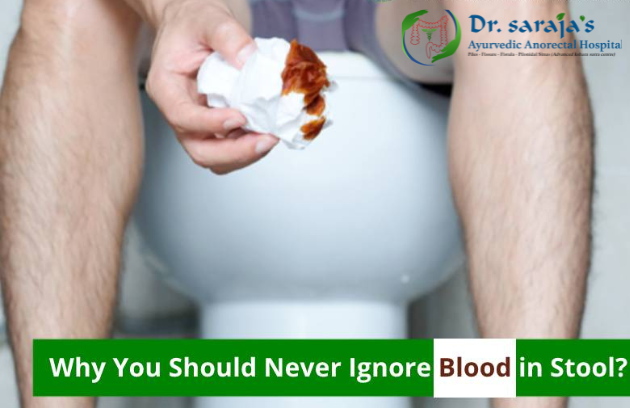Overview
Haemorrhoids, anal fissures, inflammatory bowel disease (IBD), ulcers, and colon cancer can all cause rectal bleeding. Rectal bleeding is usually visible on toilet paper, in the water in the toilet bowl, or in your stool. Rectal bleeding should be reported to your doctor as soon as possible since it might indicate a dangerous medical issue. If you have symptoms contact our ayurvedic anorectal center in kukatpally.
What is Rectal Bleeding?
Blood might be frightening when looking down into a toilet. As warning bells sound that something is awry, your thoughts may go to various areas. Rectal haemorrhage is a common cause. Rectal bleeding can be an indication of a dangerous ailment like colorectal cancer, or it can be a symptom of many different medical disorders. You may see blood in your stool or on your toilet paper when you wipe, in the water in the toilet bowl, if you’re suffering rectal bleeding. It can in a variety of colours, from brilliant red to dark maroon to black.
Is rectal bleeding a dangerous condition?
Rectal bleeding might be a mild sign of an illness that is readily cured in certain situations. Rectal bleeding can occur because of haemorrhoids, for example. This normally only lasts a few days, and haemorrhoids are usually simple to cure. Rectal bleeding, on the other hand, can be an indication of a dangerous illness like colorectal cancer. It’s critical to keep note of any bleeding you might be having.
Symptoms of Blood in Stool:
Depending on what is causing rectal bleeding, the symptoms may differ. Rectal bleeding can be caused by a variety of factors, the majority of which are curable and non-life threatening. Rectal bleeding can be a sign of a severe condition like colorectal cancer in some circumstances. Because determining the reason of rectal bleeding at home can be difficult.
Blood in stools can cause a range of symptoms, including:
- Rectal discomfort and/or pressure.
- The presence of bright red blood in or on your stool, underpants, toilet paper, or toilet bowl.
- Having a crimson, maroon, or black coloured stool.
- Having a tar-like look to one’s faeces.
- I’m having problems with my mind.
- Feeling dizzy or lightheaded.
- Fainting.
Causes of Rectal Bleeding:
- Anal Fissures: An anal fissure is a split or tear in the skin surrounding the anus that is sometimes mistaken for a haemorrhoid. When you have an extremely firm stool that is tough to pass, this happens. The skin splits open due to the increased pressure of the bowel movement. When you go to the bathroom, an anal fissure might cause you to see blood and feel burning during bowel movements. Anal fissures normally disappear on their own over a period.
- Haemorrhoids: Haemorrhoids are bulging veins in the rectum (internal haemorrhoids) or the anus (external haemorrhoids) that are the most prevalent cause of rectal bleeding. Haemorrhoids can be caused by a variety of factors, including chronic constipation, intestinal straining, pregnancy, lifting heavy things, having anal intercourse, and having a greater body weight (obesity). Haemorrhoids aren’t a medical emergency, and the blood you see on your toilet paper or in your toilet bowel shouldn’t cause you any alarm.
- Fistula: Small glands inside your anus are designed to assist you in passing faeces. Abscesses or fistulas can develop when these glands get infected. An abscess occurs when the gland inside the anus fills with pus and becomes blocked. An anal fistula is a small tube that links the abscess to the anus skin. Inflammatory bowel illness, TB, and radiation therapies can all induce these problems.
- Ulcers: When the amount of digestive fluids in your intestines is out of balance, it can create ulcers and damage the lining of your digestive system. These can bleed, resulting in black faeces with a tar-like appearance.
If you see any symptoms of any blood in your stool, consult your doctor straight away to avoid complications. If you see blood in your stool, get medical attention as soon as possible. This will also aid you in determining what else may be causing the recurrence.
Your rectal bleeding may or may not cease on its own, depending on the source of the bleeding. You must, however, pay attention to your body and monitor the bleeding. Take note if it happens once and then stops, but it’s unlikely to be an emergency. If you experience excessive rectal bleeding or observe blood on a regular basis, contact us best hospital for piles in hyderabad. It’s usually a good idea to inform your healthcare practitioner if you’ve had any rectal bleeding.

